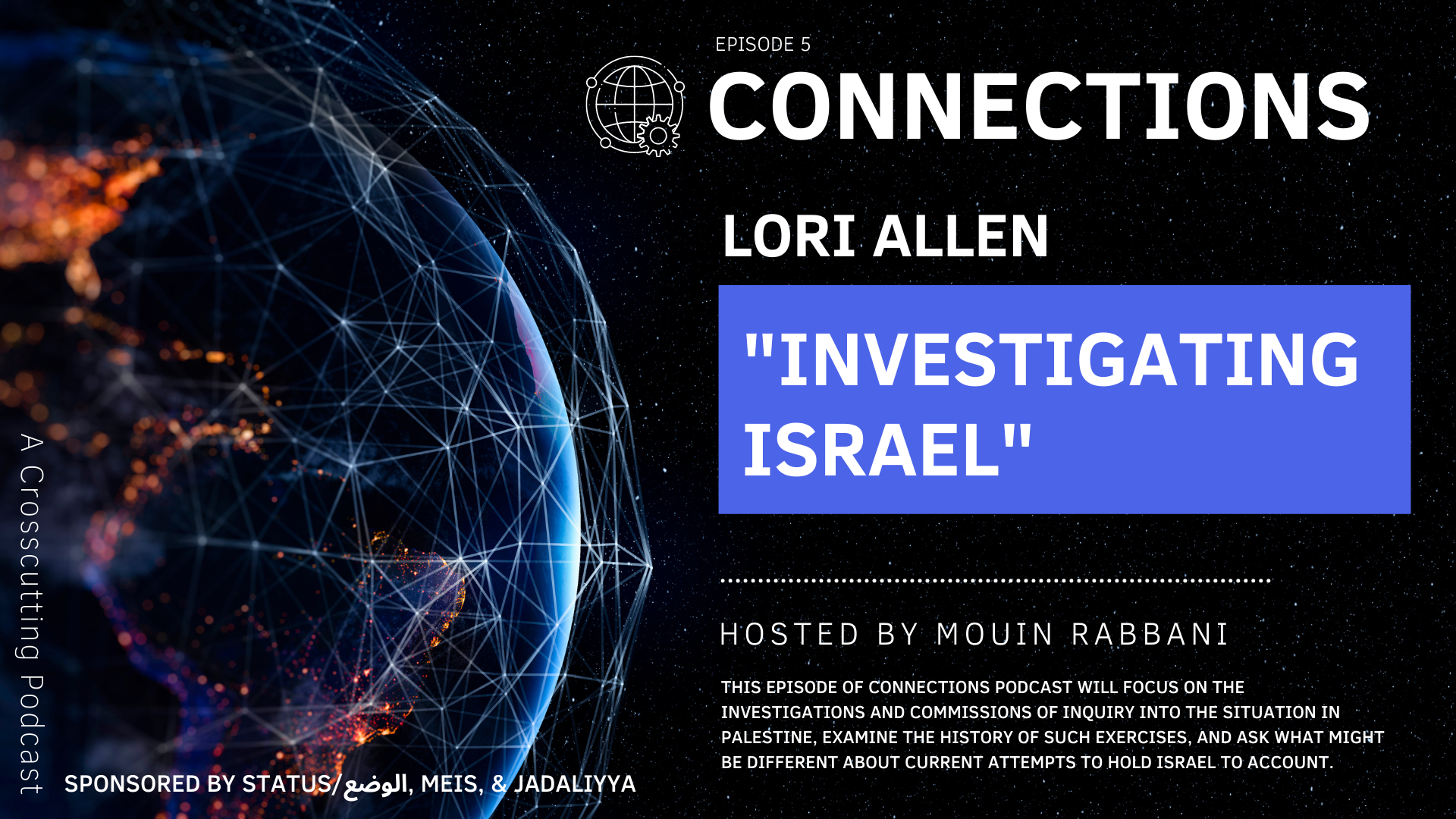Connections Podcast Episode 5
Investigating Israel
Mouin Rabbani Interviews Lori Allen
On Monday, 7 June Jadaliyya co-editor Mouin Rabbani spoke with Lori Allen about investigations and commissions of inquiry into the situation in Palestine. This episode of Connections Podcast examines the history of such exercises and asks what might be different about current attempts to hold Israel to account.
Connections offers timely and informative interviews on current events and broader policy questions, as well as themes relevant to knowledge production. It combines journalism, analysis, and scholarship. Connections will focus primarily but not exclusively on the Middle East.
Guest
Lori Allen is Reader in Anthropology at the School of Oriental and African Studies (SOAS), University of London. Her work has focused on Palestinian society, politics, and history. She is the author of A History of False Hope: Investigative Commissions in Palestine (2020) and The Rise and Fall of Human Rights: Cynicism and Politics in Occupied Palestine (2013), both published by Stanford University Press. Her articles have been published in academic and news journals, including American Ethnologist, Contemporary Studies in Society and History, MERIP, Al-Jazeera, and Sada. Lori Allen's most recent contributions include “The ICC in Palestine: Reasons to Withhold Hope”, and “This Time May Be Different: on the UN commission of inquiry investigating violations in the occupied Palestinian territory”.
Host
Mouin Rabbani has published and commented widely on Palestinian affairs, the Israeli-Palestinian conflict, and the contemporary Middle East. He was previously Senior Analyst Middle East and Special Advisor on Israel-Palestine with the International Crisis Group, and head of political affairs with the Office of the United Nations Special Envoy for Syria. He is Co-Editor of Jadaliyya Ezine.
Previous Episodes
Connections Podcast Episode 1: The Biden Administration and the Middle East with Noam Chomsky
Connections Podcast Episode 2: The Politics of Holy Cities with Mick Dumper and Maha Samman
Connections Podcast Episode 3: Apartheid Israel with Norman Finkelstein
Connections Podcast Episode 4: Israel-Palestine: A Turning Point? with Nathan Thrall
